
Marcin Kortylewski Lab
Cancers evolved to escape detection by the immune system by co-opting immune cells as a source of growth or angiogenic factors and protection. Targeting signaling specifically in such tumor-associated immune cells has been challenging for pharmacological drugs.
At the Kortylewski lab, we focus on understanding immune cell dysfunction in tumors and translating these findings into novel, precision cancer immunotherapies. Our group developed a platform technology to deliver DNA/RNA drugs into tumor-associated immune cells in vivo. Our synthetic oligonucleotides target the undruggable master regulators at the molecular level, which, as STAT3, NF-kB or certain miRNAs, are nodes of signaling from diverse receptors and kinases. Our two-step immunotherapeutic strategy is first to disarm tumor defense systems and activate immune attacks from within using a single DNA/RNA drug.
Three oligonucleotide therapeutics from our laboratory are undergoing the investigational new drug (IND)-enabling studies before clinical testing. One of these strategies is entering clinical trial in cancer patients following the recent Food and Drug Administration approval. The IND-enabling studies of two other oligonucleotide therapeutics from our laboratory are underway.
Highlights
Over the past few years, we have studied the mechanism of crosstalk between cancer cells and tumor-associated myeloid cells in hematologic malignancies and solid tumors such as prostate and kidney cancers. We have also developed a series of oligonucleotide inhibitors optimized for targeting the undruggable intracellular targets such as oncogenic or tolerogenic transcription factors and miRNAs in cancer cells and tumor-associated myeloid cells.
Current studies include:
- Targeting Transcriptional Regulators for Immunotherapy of Leukemia and Lymphoma
- Tolerogenic Signaling Crosstalk in Solid Tumors
- miRNA-Based Oligonucleotides for the Treatment of Cancer and Inflammatory Diseases
A professor in the Department of Immuno-Oncology, Marcin Kortylewski conducts research that focuses on cancer immunotherapy, oligonucleotide therapeutics (siRNA and ASO), signal transduction and tumor micro-environment.
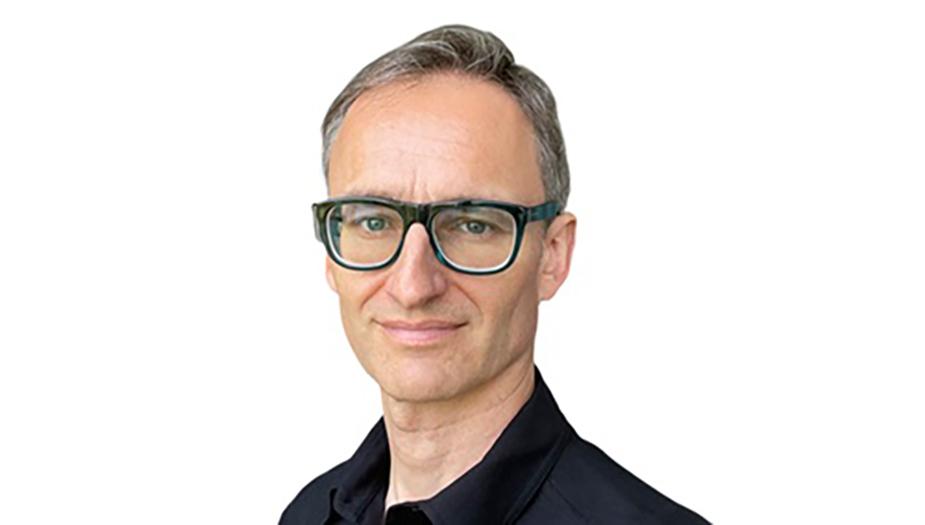
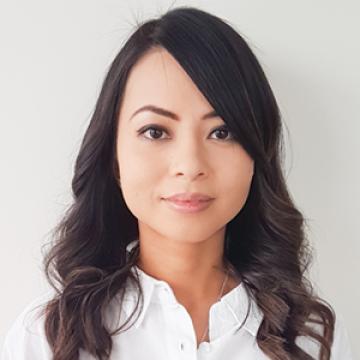

Marice Alcantara’s interest in tumor immunology began during her Ph.D. training in Australia while investigating a novel subset of T cells known as mucosal-associated invariant T (MAIT) cells in patients with chronic lymphocytic leukemia (CLL). Following her interest in immunology sparked during her Ph.D., she joined the Marcin Kortylewski lab as a postdoctoral fellow, focusing on translating novel antisense oligonucleotide-based strategies into immunotherapies for genitourinary cancers, such as those of the kidneys, bladder and prostate. Alcantara is eager to expand her technical skills and knowledge in tumor immunology and immunotherapy to grow her expertise in the field.
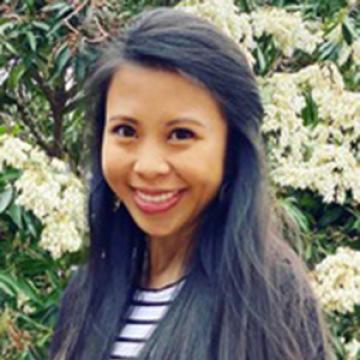

Veronica Go graduated with a Bachelor of Science from the University of Tennessee, double majoring in biochemistry and statistics. She then continued her education at Boston University School of Medicine. Go earned her Ph.D. in pharmacology and experimental therapeutics in 2020, studying the use of mesenchymal-stem-cell-derived extracellular vesicles as a therapeutic for brain injury after stroke in a nonhuman primate model. Her mentors are Dr. Karen Aboody, M.D., and Marcin Kortylewski, Ph.D., and she continues to study extracellular vesicles, in addition to oligonucleotides, as methods to reduce neuroinflammation from aging, disease and injury.
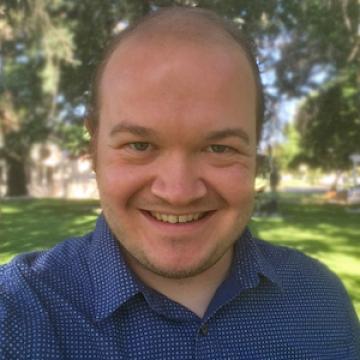

Jeremy Hall graduated from the University of Dallas in 2015 with a B.S. in biology. Following this, he spent a few years working in industry with vaccine clinical trials but always felt drawn to City of Hope’s cancer immunotherapy and translational medicine approach. In 2020, Hall entered the MSTM program at City of Hope, where he discovered his interest in the oligonucleotide research taking place at the Marcin Kortylewski Lab. Excited to learn and develop more skills, he then joined the lab as a master’s student and his current project focuses on optimizing a novel oligonucleotide approach in targeting B cell lymphoma and acute myeloid leukemia.
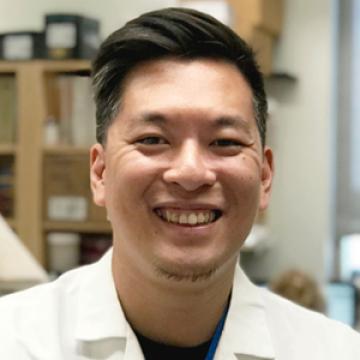

Chia-Yang Hung graduated from National Cheng Kung University in Taiwan in 2016, with a Ph.D. in molecular biology and tumor biology. From 2016 to 2019, he focused on studying the tumor micro-environment and transcriptional regulation of brain inflammation, especially in astrocyte and neuron networks. In 2019, Hung joined the Marcin Kortylewski Lab as a postdoctoral fellow to lead a project on targeting glioma tumor micro-environment, using novel oligonucleotide-based strategies. He is always driven to learn skills and expand his knowledge in tumor immunology and cancer immunotherapy.
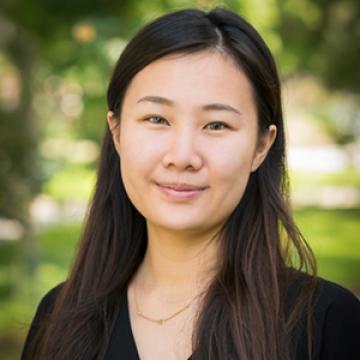

Yanan "Elaine" Kang graduated from University of California, Los Angeles in 2016 with a Bachelor of Science in biochemistry and then completed her Ph.D. at Irell & Manella Graduate School of Biological Sciences in 2021. Her thesis focused on developing novel nanoparticles encapsulated with TLR agonists, targeting tumor-associated macrophages in the context of ovarian cancer. Always willing to learn and grow, Kang recently joined City of Hope as a postdoctoral fellow to develop novel formulations and delivery methods for oligonucleotide therapeutics for cancer and inflammatory diseases.
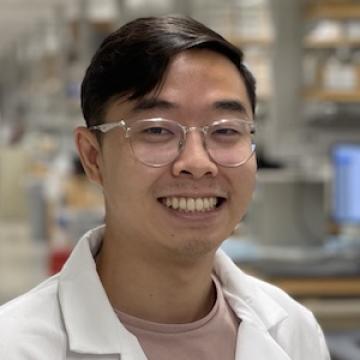

Wilson Tang graduated from University of California, Santa Cruz in 2019 with a B.S in molecular, cell and developmental biology. He previously worked in a commercial lab that specialized in genetic engineering utilizing CRISPR/Cas9 technology for manufacturing a variety of custom cell lines. To expand his knowledge, Tang joined the Marcin Kortylewski Lab as a research associate in 2021 to assist postdoctoral fellows with their research on glioma, renal and other cancer immunotherapies using oligonucleotide strategies.
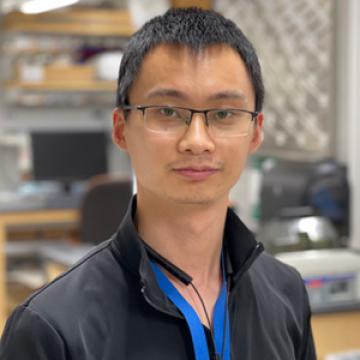

Dongfang Wang received his Ph.D. in biochemistry and molecular biology from the Chinese Academy of Sciences in 2018. During his training, he studied the function of natural killer cells in response to bacterial and viral infections and the tumor micro-environment. He joined the Marcin Kortylewski Lab for postdoctoral training to develop cancer immunotherapies for hematologic malignancies and further his career in translational cancer research. Wang's research focuses on the mechanisms of transcriptional reprogramming and immunogenicity of acute myeloid leukemia and B cell lymphoma cells.
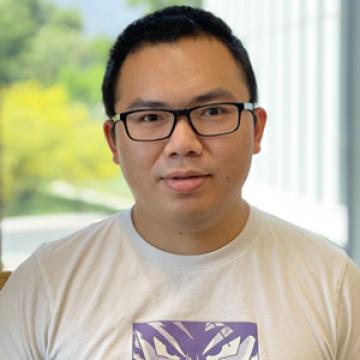

Chunsong Yu graduated in 2015 from the University of Science and Technology in Beijing, China, with a Bachelor of Science in materials science and engineering. In 2019, he received his Ph.D. mentored by Haipeng Liu, Ph.D., M.S., at Wayne State University, where he focused on developing amphiphilic oligonucleotides for cancer treatment. His current projects focus on the design and testing of new oligonucleotides for prostate cancer immunotherapy. Yu’s research interests lie at the interface of nucleic acid therapeutics, pharmaco-engineering and immuno-oncology to develop clinical-grade molecules for cancer treatment in a broad population of patients.
- Dayson Moreira, Ph.D.
- Yu-Lin Su, Ph.D.
- Zhuoran Zhang, Ph.D.
- Seok White, Ph.D.
- Maryam Aftabizadeh, Ph.D.
- Xiaowei Wang, Ph.D.
- Tomasz Adamus, Ph.D.
- Haejung Won, Ph.D.
- Priyanka Duttagupta, Ph.D.
- Dewan Sakib Md Hossain, Ph.D.
- Qifang Zhang, Ph.D.
- Chan Gao, Ph.D.
- Anna Kozlowska, Ph.D.
- Sergey Nechaev, Ph.D.
We collaborate with organizations in progressing the development of new treatments in our specialized areas of research.
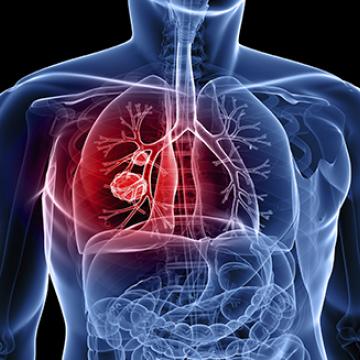
Zhang, Z., Zhao, X., Wang, D., Moreira, D., Su, Y.-L.., Alcantara, M., Swiderski, P., Wong, J., Hui, S., Forman, S., Kwak, L. and Kortylewski, M.
Moreira, D., Sampath, S., Won, H., White, S.V., Su, Y.-L.., Alcantara, M., Wang, C., Lee, P., Maghami, E., Massarelli, E. and Kortylewski, M.
Moreira, D., Adamus, T., Zhao, X., Su, Y.-L., Zhang, Z., White, S.V., Swiderski, P., Lu, X., DePinho, R., Pal, S. and Kortylewski M.
Kortylewski, M. and Moreira D.
Latest Research News
No articles found matching the selected criteria.
34.1379888, -118.0192492
Monrovia, CA 91016